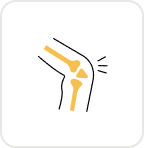Blood Tests Recommended for Women Over 40
Women over 40? Discover the essential blood tests you need—from thyroid and vitamin checks to hormone and cholesterol tests—to stay healthy and prevent future risks.


Introduction
As women age, their bodies undergo various changes, especially after 40. Hormonal shifts, metabolic changes, and increased risks of certain health conditions make regular health check-ups essential. Blood tests are a simple yet powerful way to monitor overall health, detect potential issues early, and take preventive measures.
If you're a woman over 40, here’s a guide to the most important blood tests you should consider and why they matter.
Why Are Blood Tests Important After 40?
By the time a woman reaches her 40s, physiological changes may affect hormone levels, bone density, heart health, and energy levels. Regular blood testing allows for early detection of issues like:
- Hormonal changes linked to perimenopause or menopause
- Higher risk of diabetes, high cholesterol, or osteoporosis due to slower metabolism
- Liver or kidney function decline
- Nutritional deficiencies, such as low vitamin D or B12
Regular blood tests help track these changes, allowing early detection and better management of health conditions.
Health topic carousel:
Doctor speciality: General Physician
Text: Consult Top Specialists for Personalised Health Advice
Essential Blood Tests for Women Over 40
Here’s a breakdown of the key tests that doctors commonly recommend.
1. Complete Blood Count (CBC)
- What it checks: Red and white blood cells, haemoglobin, platelets.
- Why it’s important: Detects anaemia, infections, or blood disorders.
2. Lipid Profile (Cholesterol Test)
- What it checks: Total cholesterol, LDL ("bad" cholesterol), HDL ("good" cholesterol), triglycerides.
- Why it’s important: High cholesterol increases heart disease risk.
3. Blood Sugar Tests (Fasting & HbA1c)
- What it checks: Blood glucose levels (fasting) and average sugar levels over 3 months (HbA1c).
- Why it’s important: Screens for diabetes or prediabetes.
4. Thyroid Function Test (TSH, T3, T4)
- What it checks: Thyroid hormone levels.
- Why it’s important: Thyroid imbalances (hypothyroidism/hyperthyroidism) can cause fatigue, weight changes, and mood swings.
5. Vitamin D & B12 Levels
- What it checks: Deficiency in these vitamins.
- Why it’s important: Low levels can lead to bone weakness (Vitamin D) or fatigue and nerve issues (B12).
6. Kidney & Liver Function Tests
- What it checks: Creatinine, urea, liver enzymes (ALT, AST).
- Why it’s important: Ensures kidneys and liver are functioning well.
7. Iron & Ferritin Test
- What it checks: Iron levels and iron stores.
- Why it’s important: Detects anaemia, especially common in women due to menstruation.
8. Bone Health Tests (Calcium & Vitamin D)
- What it checks: Calcium levels and bone density markers.
- Why it’s important: Prevents osteoporosis (bone weakening).
9. Hormone Tests (FSH, Oestrogen, Progesterone)
- What it checks: Reproductive hormone levels.
- Why it’s important: Helps assess perimenopause/menopause status.
How Often Should You Get Tested?
- Routine testing helps with early detection and long-term disease prevention.
- Yearly: CBC, Lipid Profile, Blood Sugar, Thyroid, Vitamin D/B12.
- Every 2-3 years: Kidney/Liver function, Iron and Ferritin.
- As recommended by your doctor: Hormone tests, bone health checks.
- Always consult your doctor to create a personalised testing schedule.
Tips for Better Health After 40
In addition to regular testing, healthy lifestyle choices can support your well-being.
1. Eat a Balanced Diet
- Include calcium-rich foods like dairy and leafy greens for bone health.
- Eat whole grains and fruits to add fibre and manage cholesterol.
- Limit sugar and processed foods to prevent diabetes.
2. Stay Active
- Weight training helps maintain muscle and bone strength.
- Low-impact cardio such as brisk walking or swimming supports heart health.
3. Manage Stress
- Practice yoga, meditation, or deep breathing.
- Get 7-8 hours of sleep nightly.
4. Regular Health Screenings
- Blood pressure and BMI monitoring.
- Mammograms for breast cancer screening.
- Pap smears for cervical health.
When to See a Doctor?
- Consult a healthcare provider if you experience:
- Unexplained fatigue, weight changes, or mood swings.
- Frequent headaches, dizziness, or weakness.
- Irregular periods or severe menopause symptoms.
Final Thoughts
Turning 40 is a great time to prioritise your health. Regular blood tests help you stay ahead of potential issues, ensuring a healthier and happier life. Don’t wait for symptoms—get tested and take charge of your well-being!
Early detection saves lives! If you're due for a check-up, Apollo 24|7 offers easy home blood test collections and expert consultations.
Consult Top General Physicians
Consult Top General Physicians

Dr. Dhanraj K
General Physician/ Internal Medicine Specialist
25 Years • MBBS, MD Internal Medicine - Osmania Medical College, Hyderabad
Hyderabad
Apollo Hospitals Jubilee Hills, Hyderabad
(375+ Patients)

Dr Syed Mateen Pasha
General Physician
2 Years • MBBS
Bengaluru
PRESTIGE SHANTHINIKETAN - SOCIETY CLINIC, Bengaluru

Dr. Mohamed Azeem
General Physician/ Internal Medicine Specialist
2 Years • MBBS,MD(Internal Medicine) CCEBDM
Karaikudi
Apollo Hospitals Karaikudi, Karaikudi

Dr. Bhukya Pavan Kalyan
General Physician
5 Years • MBBS DNB Paediatrics
Bengaluru
PRESTIGE SHANTHINIKETAN - SOCIETY CLINIC, Bengaluru
Dr P Sai Avinash
General Physician/ Internal Medicine Specialist
5 Years • MBBS
Bengaluru
Apollo Medical Center, Marathahalli, Bengaluru









